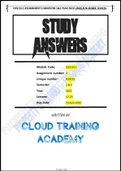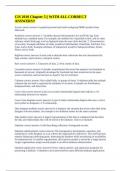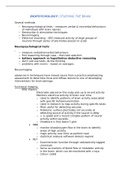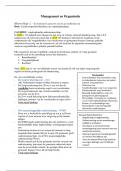Summary
Summary IMAGINING SOCIOLOGY Chapter 9: Education
- Course
- SOCI 102 (SOCI102)
- Institution
- University Of British Columbia (UBC )
CLEAR and CONCISE assimilation of notes from lectures (SOCI 102 with Catherine Corrigall-Brown), the textbook (Imagining Sociology written by Catherine Corrigall-Brown), and discussions. These notes include a COMPLETE BREAKDOWN of each important concept (with examples) and key terms highlighted. If...
[Show more]












